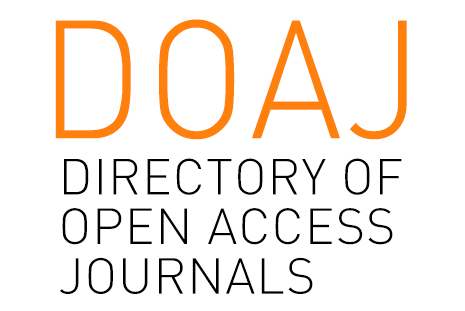Location
The Directory of Open Access Journals was launched in 2003 at Lund University, Sweden, with 300 open access journals and today contains ca. 10000 open access journals covering all areas of science, technology, medicine, social science and humanities.
DOAJ is a membership organisation and membership is available in 3 main categories: Publisher, Ordinary Member and Sponsor. A DOAJ Membership is a clear statement of intent and proves a commitment to quality, peer-reviewed open access. DOAJ is co-author to the Principles of Transparency and Best Practice in Scholarly Publishing (Principles) and DOAJ members are expected to follow these principles as a condition of membership. DOAJ reserves the right to reject applications for membership, or revoke membership if a member or sponsor is found to contravene the Principles. Read more about membership here.
DOAJ is a community-curated list of open access journals and aims to be the starting point for all information searches for quality, peer reviewed open access material. To assist libraries and indexers keep their lists up-to-date, we make public a list of journals that have been accepted into or removed from DOAJ but we will not discuss specific details of an application with anyone apart from the applicant. Neither will we discuss individual publishers or applications with members of the public unless we believe that, by doing so, we will be making a positive contribution to the open access community.
DOAJ publishes Information for Publishers on this site to help Publishers adhere to the Principles and to assist them in completing an application. DOAJ also publishes a list of FAQs relevant to all members of the publishing community, particularly libraries and authors. All information on this site is available to both members and non-members.
Aims & Scope
The aim of the DOAJ is to increase the visibility and ease of use of open access scientific and scholarly journals, thereby promoting their increased usage and impact. The DOAJ aims to be comprehensive and cover all open access scientific and scholarly journals that use a quality control system to guarantee the content. In short, the DOAJ aims to be the one-stop shop for users of open access journals.
Members:
Resources
Displaying 611 - 615 of 783The Italian Way to Carsharing
Carsharing (CS) is increasing its role worldwide as an alternative transport mode, often more sustainable than private transport with self-owned vehicles.
La necesidad de un cambio de modelo de desarrollo y su reflejo en la Ordenación Territorial (El caso de las Directrices de Ordenación del Territorio del País Vasco) / The need for a change in the development model and its reflect in Land Planning
Swiss Tree Lines – a GIS-Based Approximation
Mountain timber lines are relevant in the context of land abandonment and climate change. For Switzerland,
GIS-compliant delimitations of the tree line and the forest line are still lacking. Recent high-resolution landcover
information offers new possibilities for GIS-based approaches. In a Swiss-wide study, an analysis based
on slope zones was combined with a moving-window analysis to assess tree and forest line altitude, using
topographic data. The tree and the forest lines were delimited at the upper altitude reached by a tree or closed
THE METHODOLOGY USED TO INTERPRET CUSTOMARY LAND TENURE
Customary land tenure is normally not based on codified or statutory sources, but stems from customary traditions and norms. When westernised courts have to interpret and adjudicate these customary traditions and norms, the normal rules of statutory interpretation cannot be followed.


